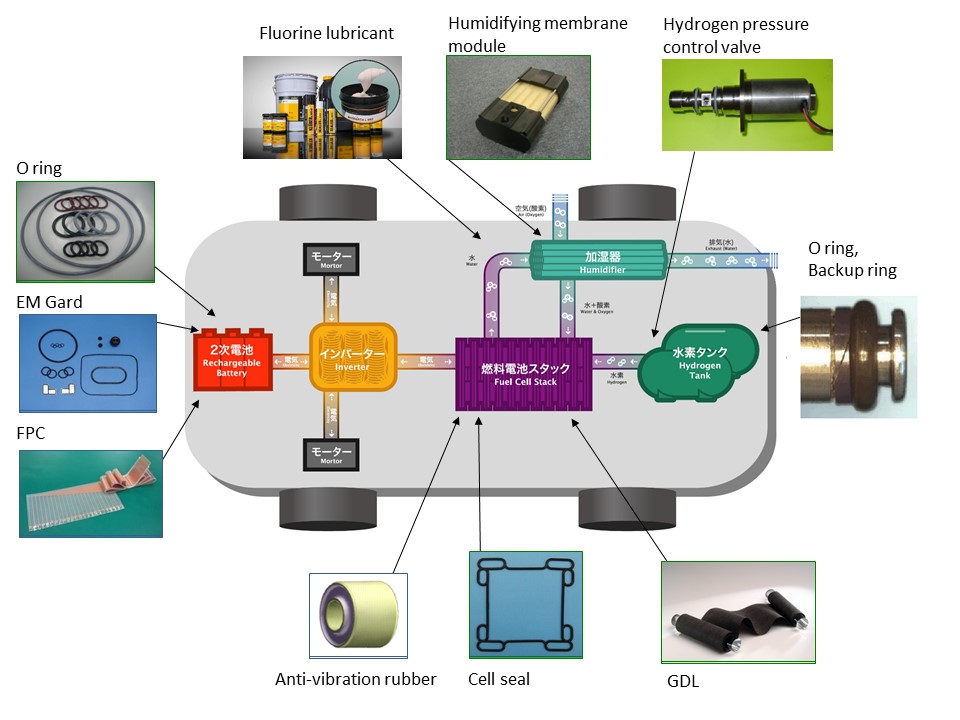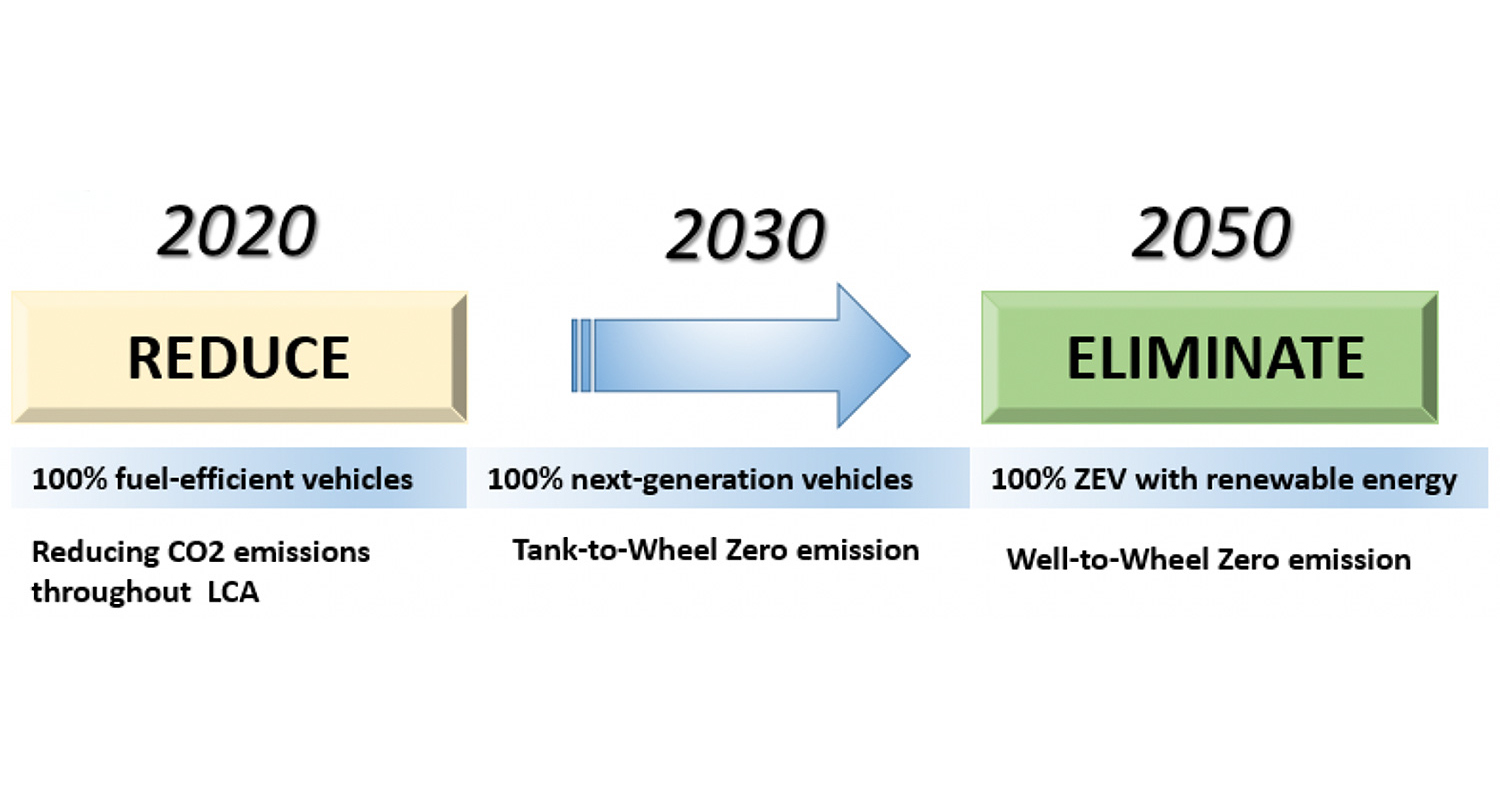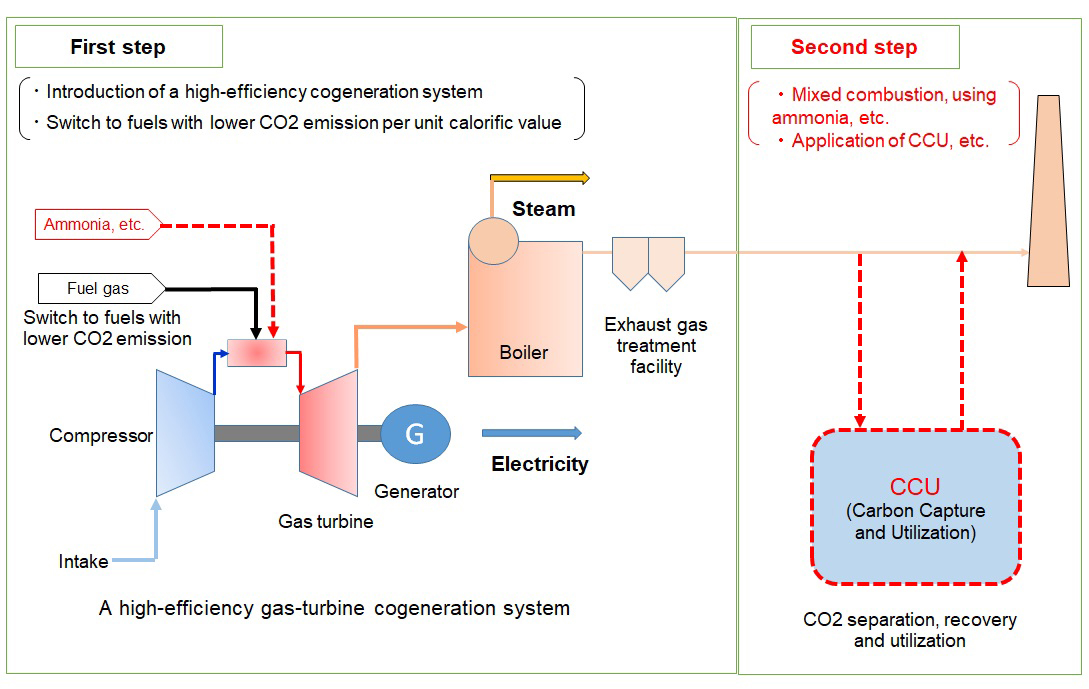Realization of Hydrogen Society through Development of Various Components for the Promotion of Fuel Cell
NOK CORPORATION
Outline
Decarbonization efforts have been underway in various fields with the aim of achieving a sustainable society, and the realization of a hydrogen society is also an important factor. One of the technologies for realizing a hydrogen society is a fuel cell. Fuel cells are devices that use hydrogen as a fuel to generate electricity and heat, and hydrogen can be produced from a variety of fuels as well as renewable energy. It can cope with hydrogen derived from fossil fuels currently in use and with CO2-free hydrogen in the future, and it can also bridge fuel production technologies.
In fuel cell systems, there is a need for control and sealing of various fuels and fluids. On the other hand, NOK has developed various functional components as a comprehensive component manufacturer by making excellent use of sealing and polymer technologies. In the field of fuel cells as well, we will take on challenges to realize a hydrogen society through the development of various parts using these technologies and know-how.
Description
Typical fuel cell systems already on the market in Japan include fuel cell vehicles (FCVs) and stationary fuel cells (e.g., ENE-FARM). Taking the FCV as an example, the main components are a hydrogen tank, a fuel cell stack, an inverter, a motor, and a secondary battery. NOK develops, manufactures, and expands sales of various products to promote the manufacture of the fuel cell (mainly PEM-FC), and provides NOK products as shown in
Fig. 1. Especially, there are a hydrogen tank and a fuel cell stack as the configuration peculiar to the fuel cell, and NOK develops the main product group such as the seal. These peripheral components are required to have unprecedented performance, durability, and cost, and further high requirements have been shown in development for the next generation.
In the development of NOK, we are also working on by setting targets to meet the demands of low costs, durability, etc. with reference to the "Strategy for Developing Hydrogen and Fuel -Cell Technologies" as indicated by the Ministry of Economy, Trade and Industry(METI), and client requirements. One of the challenges is the compatibility of cost and performance with consideration of safety, and the other is the establishment of a system for mass production. As an initiative for the next generation, we are developing appropriate products that make maximum use of the technologies we have cultivated up to now, and we are also proceeding with new development that looks ahead to the next generation. As a result of these development effects, FCVs are expected to have a system price and performance comparable to those of existing internal combustion engine vehicles (ICV), which will help realize a hydrogen society.
Similar Innovation Challenges
Achieve 2050 decarbonization target with Net Zero Energy House!
Sekisui House, Ltd.
Achieving net-zero emissions by promoting renewable energy use through both our monozukuri and products.
DAIWA HOUSE INDUSTRY CO., LTD.







